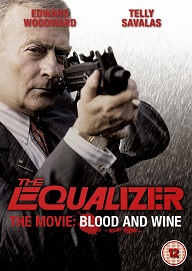This is Faith in Play #51: Protectors, for February 2022.
Last month we looked at another archetype character, exploring the positives and negatives of Mercenaries. In the discussion stimulated when I asked about the type, a confusion arose, bringing up a different type of fighter, exemplified by the legendary lone ronin of Japanese folklore, the lone gunslinger of American westerns, perhaps The Equalizer of modern television—someone who fights to defend the weak, simply because the adversity against them is unfair.

It is easy to find the positives of these heroes. They defend the defenseless, risking their own lives for no other reward than that they know they have made the world a better place. Indeed, quite a few of our superheroes are based on the model of individuals who use their resources and train themselves to be able to protect others—Batman, Mantis, Daredevil, Green Arrow. We wish these characters were real. We love them and believe they make the world safer.
The police, however, do not. In the main, they call these people vigilantes and scofflaws, and frequently put them on their local most wanted list. And they have a point. There are, after all, procedures involved in apprehending and convicting a criminal. Just because a man is found bound and gagged inside a jewelry store doesn’t mean we have a case to charge him with attempted robbery. Besides, what happens when the efforts of the protector go wrong—when a bystander is hurt or even killed in the defense of someone else? Even if someone is a threat to the life of an innocent being defended by the protector, we don’t condone the killing of such a person. There are reasons why the protection of the innocent is left to the professionals.
Yet we cannot help feeling that they need help. What is the line between a neighborhood watch program and a posse? We don’t condone lynch mobs, and for precisely this reason: they too often target the wrong person, or fail to have sufficient evidence to support the conclusion that the one they pursue is in fact the villain they suppose. In one episode of Person of Interest, the seemingly innocuous middle-aged gentleman whose life they saved turned out to be one of the city’s leading crime bosses. The protector faces the danger that he has chosen the wrong side.
That, though, is a danger we all face, even as believers. Are we defending the wrong people, the wrong principles, the wrong ideals? The protector gives us the example of courage, of taking a stand in defense of truth and justice; he also gives us the caution that we must examine ourselves and know that we are in the truth.
We also learn that the forces that are supposed to defend right in the world are not always doing so, and that sometimes it falls to us to do it.
Previous article: Mercenaries.
Next article: Pirates.
